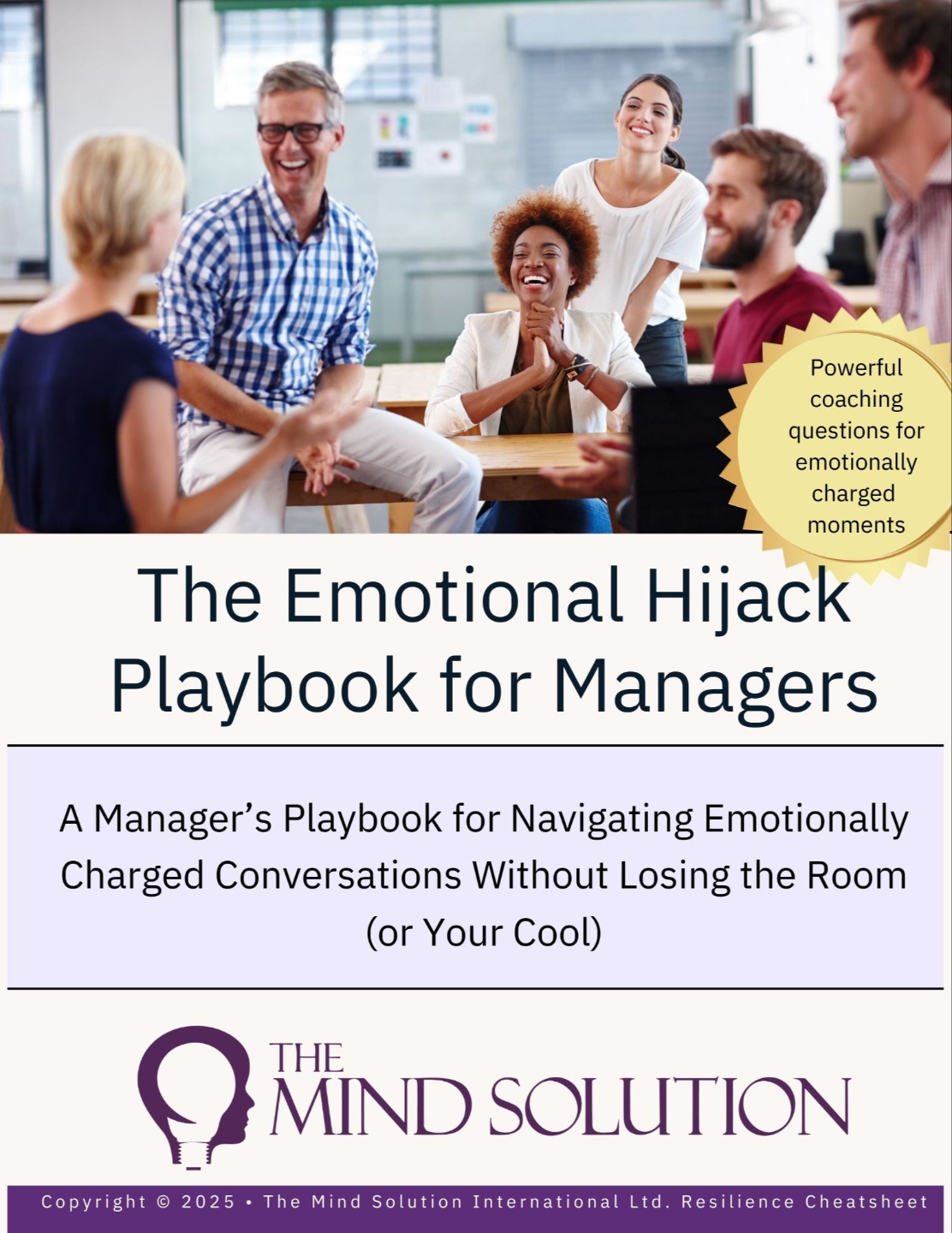They’re Just Playing the Mental Health Card
Aug 01, 2025
People are Playing the Mental Health Card
“They’re just playing the mental health card.”
If you’ve worked in retail, chances are you’ve heard it. Maybe even said it. I’ve heard it myself more times than I can count, especially when delivering mental health training for managers in fast-paced, high-pressure environments.
It’s usually said with frustration. Sometimes with disbelief. Often with a roll of the eyes or a sigh that says, “Here we go again.”
And I get where it comes from.
In my 20s, I worked at Debenhams on Oxford Street. Absence was high. I was constantly in meetings about who was off and why, and whether it was time to move to disciplinary.
We didn’t talk about mental health back then, not really. It just wasn’t in the HR vocabulary.
If someone went off sick repeatedly, we assumed it was an “attitude problem.” You turned up. Or you didn’t.
But now, in 2025, we are talking about mental health. Or at least, we say we are.
And yet... I still hear managers fall back on the old assumptions. Only now they sound like this:
“They’re playing the mental health card.”
What does that phrase mean?
Let’s be honest — when someone says this, what they often mean is:
-
“I don’t believe them.”
-
“I’m worried I’m being taken advantage of.”
-
“I don’t know how to handle this, and I feel uncomfortable.”
-
“They don’t look unwell to me.”
And underneath that? A whole lot of fear, pressure, and uncertainty.
Because most managers aren’t trying to be harsh. They’re just under-resourced. They haven’t been trained to recognise what’s going on underneath the surface. So instead, they protect themselves by assuming the worst.
As one person put it, “Managers are too busy, too scared, and too quick to assume the worst.”
And that’s exactly why proper mental health training for managers matters so much.
“I didn’t even realise how much I was struggling…”
That’s what one employee said in response to a recent LinkedIn post. She went on to say:
“But my amazing manager spotted the signs and made it absolutely okay for me to take the time I needed to get better. They’ve supported me every step of the way.”
That’s what good leadership looks like. Not fixing. Not diagnosing. Just noticing. Asking. Making it safe.
But that kind of leadership doesn’t happen by accident. It happens when we stop promoting people based purely on tenure or technical skill — and start equipping them to manage humans.
What if they’re not playing a card? What if they’re just drowning?
I’ve heard stories in therapy rooms, training rooms, and boardrooms that would stop you in your tracks.
A once high-performing employee suddenly starts getting things wrong. Missing deadlines. Avoiding meetings.
The assumption?
They’re slacking off. They’ve switched off. They don’t care.
But when someone finally checks in, really checks in, the story unravels.
It turns out they’ve been silently drowning for months.
Fighting to keep it together at work while caring for a sick parent. Or navigating a separation. Or managing a chronic illness they haven’t told anyone about.
“Mental health issues are difficult to deal with — because of the stigma. The person struggling is scared to ask for help, and the people around them don’t want to get involved.”
That was a comment from someone who’s seen both sides. And they’re right.
The shame. The silence. The fear. It’s all still there.
One good conversation can change everything
One of the stories that stayed with me recently was shared by an employment lawyer.
A manager was ready to dismiss someone who had become a “problem” employee. Always late, unproductive, and disengaged. The Managing Director said, “Just sack them.”
If they’d gone ahead, it would’ve cost the company over £85,000 in a tribunal payout.
But they didn’t.
Instead, someone asked the right questions.
And here’s what came out:
The employee had a severe anxiety disorder, triggered by a move to an open-plan office.
They’d been having panic attacks in the toilets, too afraid to speak up.
One proper welfare conversation. That’s all it took.
They got support. Flexible hours. A quieter workspace.
Six months later?
That same employee was the best performer in the department.
“Fixing broken systems is leadership”
I have also heard HR leaders say;
“Sacking broken people isn’t leadership. Fixing broken systems is.”
Because that’s the real shift we need.
We spend so much time trying to squeeze people into systems that don’t fit them, and then blame them when they don’t cope.
But what if we designed systems that fit humans instead?
That’s what proper company wellbeing programmes should be aiming for.
Not perks. Not apps.
Training. Awareness. Humanity.
Stop waiting for people to say it out loud
One of the biggest takeaways for managers is this:
“Employees don’t have to tell you they’re struggling. It’s on you to notice when something’s off.”
That’s mental health leadership.
Because here’s the truth:
Most people don’t say, “I’m not coping.”
They just start slipping. Quietly. Gradually.
The question is — do your managers know how to spot the early signs? Do they know how to respond in a way that opens the door, rather than shutting it down?
This isn’t about being soft — it’s about being skilled
Some still worry that training managers in mental health makes things “too soft.” That it’s about lowering standards.
But what I’ve seen — time and again — is that when people feel safe, they perform better.
They bring more. They stay longer. They trust deeper.
“Recognising underlying issues transforms challenges into opportunities.”
“Empathy isn’t weakness. It’s the foundation of real strategy.”
These aren’t slogans. These are lived truths, echoed by HR leaders, employees, and senior managers across sectors.
Final thought: Don’t dismiss it. Listen to what it’s telling you.
So next time someone says, “They’re just playing the mental health card,” pause.
Ask:
- Why might that person feel the need to say it that way?
- What support haven’t they had?
- What’s being overlooked?
Because more often than not, what sounds like an excuse is actually a signal.
And when your managers are trained to respond with presence and clarity, that signal becomes a turning point, not a ticking time bomb.
Mental health training for managers isn’t a nice-to-have. It’s a non-negotiable.
And it starts by shifting how we see the stories behind the behaviour.
Are you ready to create psychologically safe workplaces? Schedule a call to find out how our mental health training for managers can achieve that.
The Emotional Hijack Playbook For Managers
A Manager’s Free Resource for Navigating Emotionally Charged Conversations Without Losing the Room (or Your Cool).
Perfect to use in your next one-to-one.







